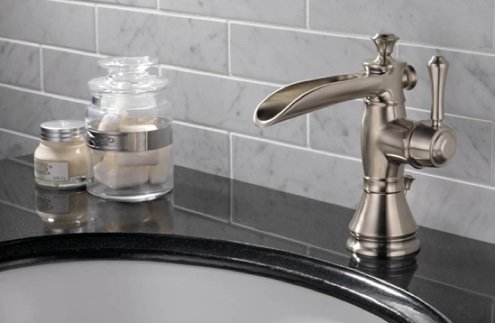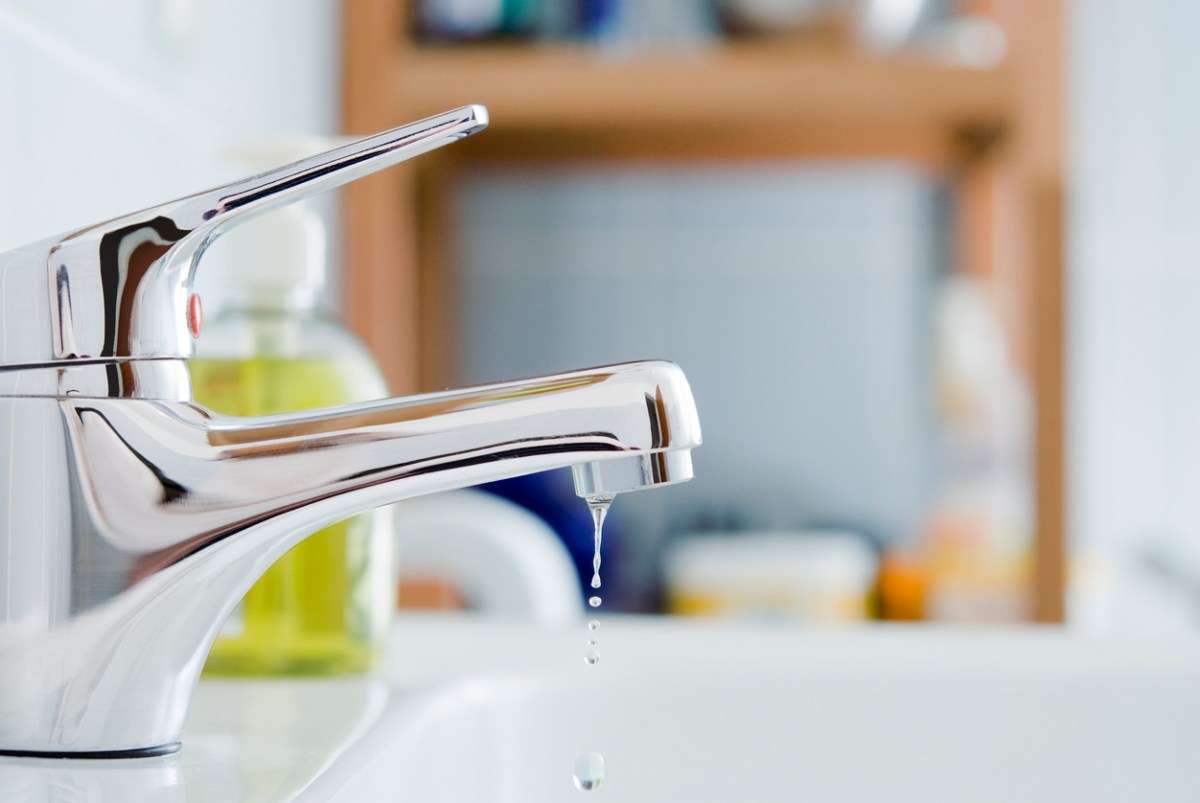We have stumbled upon this article about Why Is It Important To Fix Your Leaking Tap/Faucet? below on the net and reckoned it made sense to write about it with you on this site.

Dripping taps may feel like a minor trouble, however their impact exceeds simply the nuisance of the audio. From drainage to sustaining unnecessary financial expenses and health dangers, overlooking a dripping tap can bring about various consequences. In this write-up, we'll explore why it's important to address this common house concern immediately and successfully.
Wastefulness of Water
Environmental Effect
Dripping taps add dramatically to water wastefulness. According to the Epa (EPA), a solitary faucet leaking at one drip per second can lose greater than 3,000 gallons of water annually. This not only strains water sources but likewise affects ecosystems and wild animals dependent on them.
Step-by-Step Overview to Taking Care Of a Dripping Tap
Tools Called for
Prior to trying to take care of a leaking tap, collect the needed devices, consisting of a flexible wrench, screwdrivers, substitute components (such as washing machines or cartridges), and plumber's tape.
Usual Faucet Issues and Their Solutions
Recognize the type of faucet and the certain concern creating the drip. Common problems include worn-out washers, rusty valve seats, or defective O-rings. Describe maker instructions or on-line tutorials for detailed assistance on repair services.
Financial Expenses
Raised Water Costs
Past the ecological impact, dripping taps can blow up water expenses substantially. The collected wastage over time translates into greater energy costs, which could have been stayed clear of with timely fixings.
Prospective Building Damage
Furthermore, extended leaking can lead to harm to fixtures and surfaces surrounding the tap. Water build-up can create staining, corrosion, and even architectural issues if left neglected, leading to additional fixing costs.
Health Concerns
Mold And Mildew and Mildew Growth
The consistent existence of moisture from a dripping tap produces an excellent setting for mold and mildew development. These fungi not just jeopardize indoor air quality but additionally posture health dangers, specifically for people with breathing problems or allergies.
Waterborne Diseases
Stagnant water in trickling faucets can end up being a breeding ground for germs and various other pathogens, boosting the danger of waterborne conditions. Pollutants such as Legionella germs prosper in stationary water, possibly resulting in major health problems when consumed or inhaled.
DIY vs. Specialist Fixing
Benefits and drawbacks of Do It Yourself Repair Service
While some may attempt to take care of a leaking tap themselves, DIY fixings feature their own collection of difficulties. Without correct knowledge and devices, do it yourself efforts can intensify the concern or result in incomplete repair services, lengthening the trouble.
Benefits of Hiring a Specialist Plumber
Working with a professional plumber ensures that the underlying root cause of the trickling faucet is addressed efficiently. Plumbers have the proficiency and tools to diagnose and fix faucet problems efficiently, conserving time and lessening the threat of additional damages.
Environmental Duty
Individual Payment to Conservation
Taking obligation for fixing trickling faucets straightens with more comprehensive initiatives toward water conservation and environmental sustainability. Every person's activities collectively make a substantial impact on protecting precious sources.
Lasting Living Practices
By prioritizing prompt fixings and adopting water-saving habits, people contribute to sustainable living practices that benefit both present and future generations.
Preventive Measures
Regular Maintenance Tips
To prevent trickling taps, carry out routine upkeep such as cleansing aerators, checking for leakages, and replacing damaged components immediately. In addition, consider installing water-saving devices or updating to a lot more efficient fixtures.
Relevance of Prompt Fixes
Addressing dripping taps as soon as they're discovered protects against further water wastefulness and potential damages, inevitably saving both water and cash over time.
Impact on Property Worth
Perception of Well-Maintained Building
Keeping a residential or commercial property in good condition, including addressing upkeep concerns like leaking taps, enhances its regarded worth and worth amongst potential customers or occupants.
Influence on Resale Value
Properties with properly maintained plumbing fixtures, including faucets, command greater resale worths in the property market. Addressing dripping taps can contribute to a favorable impact during building evaluations and negotiations.
Final thought
Resolving a trickling tap surpasses plain ease; it's a necessary action towards saving water, minimizing economic costs, and guarding wellness and property. Whether with do it yourself fixings or professional aid, acting to fix trickling faucets is a little yet impactful method to promote responsible stewardship of resources and add to a much healthier, much more lasting future.
How to Fix a Leaky Faucet: Step-by-Step Repair Guide
A leaky faucet may seem like a simple annoyance, but if it's not fixed promptly, that leak could cost hundreds to potentially thousands. From water damage to mold, mildew, and high water bills, even a tiny leak can be catastrophic if left unattended. Damage like this can even affect the overall value of your home, so it's important to take the right approach for leaky faucet repair. You may need the help of a plumber in some cases, but we've got a few tips you can try on how to fix a leaky faucet before calling the pros.
Four Faucet Types
When you're learning how to fix a leaky faucet, the first step is knowing what kind of faucet you're working with! There are four common types.
Cartridge Faucets
Cartridge faucets come in one- or two-handled varieties. In one-handled cartridge faucets, hot and cold water combines in a single cartridge. In the two-handled versions, hot and cold water are controlled separately and mixed in the faucet.
Ball Faucets
Ball faucets have a single lever you push up and down to adjust the pressure and rotate to change the temperature. A slotted metal ball controls the amount of water allowed into the spout.
Compression Washer Faucets
They're the oldest type of faucet, but they're still used in many homes — especially older ones. Compression faucets have two separate handles that, when turned, raise or lower the washer that seals a water valve. This valve stops water from flowing through the faucet when it is turned off.
Disc Faucets
Disc faucets rarely need to be repaired due to their maintenance-free design. The water flow is controlled by two discs — the upper one raises and lowers against a fixed lower disc, creating a watertight seal. If your disc faucet starts leaking, you may need to replace the seals or clean residue buildup from the inlets.
Fixing a Leaky Faucet
Step 1: Turn Off the Water
Whether you're learning how to fix a leaky bathtub faucet or how to fix a leaky kitchen faucet, always turn off the water supply to your working area when you're fixing a leak. The last thing you want is a flood added to your list of things to fix.
Look for the shutoff valves below your sink or around the tub and turn them clockwise to stop the water flow. If your faucet doesn't have shutoff valves, you may need to turn off the water for the whole house. Check to make sure it's off by turning the faucet on. If nothing comes out, you're ready to start the repair.
Step 2: Take Apart the Faucet
How you disassemble your faucet depends on the type of fixture you have. You can use a flathead screwdriver to remove the caps on top of the handle or handles for cartridge and compression faucets. Inside, you should see handle screws. Unscrew these with a screwdriver to remove the handle.
Disc- and ball-style faucets will typically have an inlet screw near the handle, and removing that will reveal the interior of the faucet.
Detach the Valve Stem
For cartridge- and compression-style faucets, you'll see the inner valve stem or cartridge once you remove the faucet handles. If you have a compression faucet, unscrew the brass valve stem. If you have a cartridge faucet, pull out the cartridge. If your cartridge has been in place for a while, it may require some tools or extra force to remove it due to mineral deposits.
Examine and Replace Parts
Once you've removed the parts, check them out to confirm what needs to be replaced. You may see corroded rubber washers, O-rings, stems, or cartridges. On a ball-style faucet, check the seats and springs for damage.
If you need to repair a leaky disc faucet, check the inlet and seals on the lower disc.
Once you determine what parts must be replaced, visit your local hardware store. Bring the damaged parts with you to ensure you can purchase the correct components to replace them.
Clean Valves and Faucet Cavity
If you've removed a stem or cartridge, you may notice mineral buildup in the faucet's threads. Use white vinegar to clean the valve seat by soaking it for a few minutes, then scrub it away with a soft toothbrush and rinse with warm water. You can also clean the interior of the faucet in the same way.
Reassemble the Faucet
Once your faucet is cleaned and the required parts have been replaced, it's time to reassemble it. Put the pieces back together and slowly turn the water supply back on. Doing this slowly is crucial because too much initial water pressure can damage the new hardware you've just installed.
https://homewarranty.firstam.com/blog/how-to-fix-leaky-faucet

As a serious person who reads on Water Dripping from Faucet: Why and How to Fix, I was thinking sharing that blog post was appropriate. Those who liked our page plz be sure to pass it around. Many thanks for your time invested reading it.